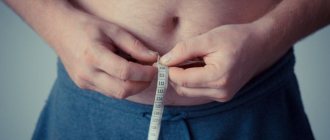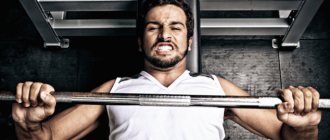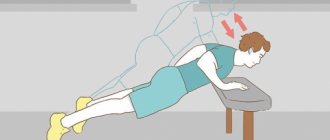Home » Products » 14 Best Sports Injury Foods and Supplements for Speedier Recovery
Products
08.02.2017
3606 Views
Unfortunately, injuries are an integral part when it comes to sports and athletics.
However, no one likes to be on sick leave longer than necessary and we advise you to think about proper nutrition during injuries.
Fortunately, certain foods and supplements can help reduce the amount of time it takes your body to recover from a sports injury.
How long does it take to recover after training?
There are several phases of the muscle recovery process.
- The first phase begins immediately after the end of the workout and lasts about an hour. At this time, the body especially needs nutrients, necessary not only for further muscle growth, but also for replenishing energy reserves, after significant expenses. Therefore, during this period it is important to consume food and sports supplements based on proteins (amino acids) and carbohydrates. But this is only a partial recovery.
- Full muscle recovery can take anywhere from two to five days, and the larger the muscles trained, the longer they take to recover . For example, small muscle groups such as biceps, triceps are restored in 1-2 days, medium and large muscles: back, chest, legs, deltoids up to 4-5 days. Although the duration of healing as a result of damage to muscle fibers depends on the resulting microtraumas. The recovery process also depends on the individual metabolic rate.
Source of youth and activity
When talking about vitamins for muscle building, we cannot forget about tocopherol. Vitamin E is the main element of beauty and activity. Without it, you will not get the required amount of energy. If you decide to build muscle at an accelerated pace, then you definitely can’t do without it. It is tocopherol that regulates muscle activity. Moreover, it is a source of strength and energy that is so necessary for athletes. Another important function is the protection of cell membranes, which are also damaged during intense training. This is what muscle growth will depend on. However, you should not rely only on vitamins; you will have difficult and long work on each muscle group.
The main sources of vitamin E are vegetable oils. It is necessary to eat only unrefined product made by cold pressing. Additionally, you need to enrich your diet with peanuts and almonds, cereals and avocados, as well as leafy vegetables.
Methods for muscle recovery after training
There are active and passive muscle recovery.
- Passive recovery - complete rest and rest from any stress, that is, abstaining from them for 2-3 days or until complete recovery. This method is suitable for all athletes, especially if there are symptoms of overtraining. The only disadvantage of the method, if used frequently, is the lack of adaptation to new loads; the athlete stops developing.
- Active recovery - involves a set of active measures, such as: cardio exercise for 10-20 minutes after training, muscle stretching to remove lactic acid and toxins, as well as sports massage.
Gift from the sun
In summer, vitamin D is produced in our body on its own under the influence of ultraviolet radiation. Its main function in the process of muscle growth is to normalize the absorption of phosphorus and calcium. It is thanks to these elements that muscle contractions occur. The duration of strength training depends on their intensity.
Without enough vitamin D, muscle growth slows down significantly. In addition, the severe stress to which the body is exposed in the gym significantly increases the risk of injury. Vitamins for strengthening muscles promote their growth and speedy recovery, and calcium strengthens the bone tissue that holds these muscles. In other words, in order to withstand increasing loads, the body needs more calcium, the absorption of which is much more efficient in combination with vitamin D.
To fully obtain vitamin D, you need to eat fatty fish, liver, eggs and mushrooms. And on sunny days it is extremely important to spend more time in the fresh air.
What physical activity is acceptable when restoring muscles after training?
The benefits of cardio training after exercise is the acceleration of the removal of lactic acid from the muscles, that is, breakdown products, and this significantly speeds up recovery. Cardio should be light, without raising your heart rate to the limit. Walking on a treadmill, stepper, orbit track, as well as an exercise bike are suitable.
Stretching allows you to return your muscles to their normal state, maintaining their elasticity and preventing them from becoming stiff. Tight and stiff muscles are prone to injury and are slower to recover and grow.
The only thing is that such muscles need light stretching, but in no case dynamic and strong stretching, otherwise they can be easily injured, and they will not heal for several months.
Nutrition for muscle recovery throughout the day
- Breakfast: immediately after sleep - sports nutrition (amino acids or protein shake).
- After half an hour: complex carbohydrates + simple (cereals: oatmeal, brown rice, wheat, corn + honey, dried fruits, fruits).
- Snack: fruits or berries with cottage cheese.
- Lunch: Complex carbohydrates (cereals rich in fiber) + vegetables and herbs, eggs or lean meat.
- Half an hour before training: full cycle amino acids.
- Immediately after training: BCAAs.
- After half an hour: gainer or protein shake with milk + banana. Or, instead of sports nutrition, eat carbohydrates (cereals, vegetables, fruits) and proteins (cottage cheese, eggs or meat).
- Dinner: Protein-rich foods (meat, poultry, fish, dairy products, eggs) + vegetables with butter.
- Before bed: dairy products, amino acids or casein protein.
Dream
Without a night's sleep, all methods and efforts will go down the drain. It is at night that all restoration processes take place, both in muscle tissue and in the central nervous system. For muscle anabolism (growth) you need rest for 7-10 hours, but no less. It also doesn't hurt to sleep during the day, for example, after a workout. This will significantly speed up recovery. Read more about the benefits of sleep after exercise →
Vitamin A
Just as the alphabet begins with this letter, we also want to start our list with retinol. And how could it be otherwise, because vitamins A and E are the most important substances for growth. And our muscle tissue obeys the same laws as the entire body as a whole.
The main function of vitamin A is protein synthesis. But that is not all. If there is a sufficient amount of this element in the diet, glycogen production accelerates. As you know, this is a source of energy that the body uses during periods of maximum physical activity.
Athletes need to consume vitamins A and E in fairly large quantities, since physical activity significantly impairs its absorption. This is especially true for retinol. Most of the vitamin A that enters the body is excreted unchanged. It is important to know that there are also natural sources, of which there are quite a lot. These are milk and tomatoes, fish and melon, as well as all fresh herbs.
Sports nutrition and vitamins for muscle recovery
Throughout the day, and not just after strength training, athletes need more nutrients, vitamins and minerals than untrained people. The rate of absorption of nutrients from food is much slower than that of sports nutrition and pharmaceutical dietary supplements, therefore, for a speedy recovery and prevention of catabolism, it is necessary to provide “first aid” as a sports nutrition supplement.
Full cycle amino acids and BCAAs
A full cycle serving should be taken before training or before bed, while BCAAs are needed immediately after training and after a night's sleep. Amino acids not only accelerate muscle recovery and growth, but also prevent destruction under the influence of cortisol, which is produced after training and sleep.
Gainer with glutamine and creatine or supplements separately
Sports nutrition for those who are gaining muscle mass. In addition to essential nutrients, creatine and glutamine accelerate recovery and remove waste products. Take supplements immediately after training along with BCAAs.
Vitamins and minerals
During intense exercise, athletes need all the minerals and vitamins for muscle recovery, especially B vitamins, ascorbic acid, zinc, and magnesium. You can take courses of vitamin and mineral complexes designed specifically for athletes, following the dosages and manufacturer’s instructions.
Essential Vitamins and Minerals for Athletes
All vitamins are divided into 2 groups:
- Fat-soluble: A, E and D. Accumulate in liver and adipose tissue. In this regard, such vitamins must be taken strictly in accordance with the dosage, since exceeding the dose can be dangerous. It is also better to use them in the morning in combination with cholesterol contained in flaxseed oil or fish oil.
- Water-soluble: groups B and C. When ingested with food, they immediately enter the bloodstream, do not accumulate in tissues and are quickly eliminated. Vitamins of group C should not be combined with D and E, since they are less easily absorbed this way.
We advise you to study: “Fat-soluble vitamins: why they are needed and where they are found.”
| Vitamin | Benefits in sports | Norm per day for athletes, mg |
| A (retinol) | stimulates tissue regeneration; activates additional testosterone production; Helps you recover faster between workouts. | 2,5-4,0 |
| B1 (thiamine) | participates in protein and carbohydrate metabolism; supports insulin secretion; prevents fatigue; accelerates muscle growth. | 0.7 mg per 100 kcal of diet. It shows an effect only with systematic and long-term use. |
| B2 (riboflavin) | increases muscle tone; participates in protein metabolism; helps to stay in good shape during heavy physical activity; suppresses the production of excess insulin, which makes it easier to follow a strict diet during extreme drying. | 0.8 mg per 1000 kcal of diet. |
| B3 (niacin, nicotinic acid) | delivers nutrients to muscles and other tissues; prevents the development of muscle weakness and fatigue; supports libido; improves mood. | 28-42 mg. The requirement increases with a low-protein diet. |
| B5 (pantothenic acid) | regulates the metabolism of fats and carbohydrates; prevents muscle wasting and weakening; relieves joint pain. | 15-20 |
| B6 (pyridoxine) | increases resistance to stress (in combination with magnesium); accelerates muscle gain; enhances the effect of B1, B2 and C. | 5-10 |
| B7 (biotin) | activates metabolism; supports healthy skin, nails and hair. | 0,3-0,4 |
| B9 (folic acid) | has a beneficial effect on protein metabolism; ensures sufficient oxygen supply to tissues. | 0,6-0,4 |
| B12 (cyanocobalamin) | increases reaction speed; increases productivity; ensures better absorption of other nutrients; increases the effectiveness of taken vitamin complexes. | 0,004-0,01 |
| C (ascorbic acid) | activates the immune system; reduces the likelihood of overtraining. | 150-200, and during competitions - 200-300. |
| E (tocopherol) | increases the body's sensitivity to calcium; increases the strength of ligaments, muscles and bones; increases testosterone synthesis, increasing exercise tolerance; blocks the action of free radicals, helping to slow down aging. | 40 |
| D3 | improves the absorption of calcium obtained from sports nutrition; strengthens the skeletal system. | 0,005 |











